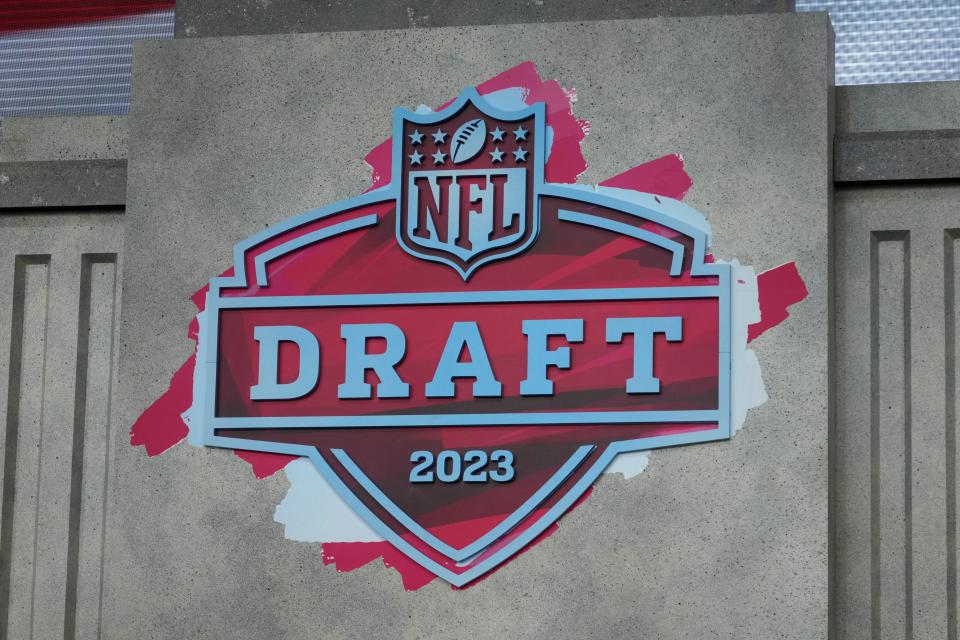HBCUs fuel debate about equal opportunity in NFL draft
One draft pick.
After the NFL’s 32 teams combined to select just one player from an HBCU (Historically Black Colleges and Universities) school in the NFL draft that concluded last weekend, the reaction was swift and sharp.
Deion Sanders, aka “Coach Prime,” tweeted that he was “ashamed.”
Doug Williams, the legend from Grambling, said that he was “stunned.”
James Harris, like Williams a former Grambling quarterback who left a historic mark on the NFL, called it “disappointing.”
“There were HBCU players with the ability to compete,” Harris told USA TODAY Sports this week. “Some of them signed as free agents, yet they deserved to be better evaluated and drafted.”
NFL's INSTANT-IMPACT ROOKIES Can anyone catch Bijan Robinson?

Harris, formerly a long-time NFL personnel executive, speaks from the front line. He and Williams, who co-founded the Black College Football Hall of Fame, also founded the Legacy Bowl and HBCU combine that were staged in New Orleans in February to showcase players from HBCU schools.
Two years ago, not a single HBCU player was drafted. After four were chosen in the 2022 draft, the pattern was reversed as Jackson State cornerback Isaiah Bolden was the only draft pick from an HBCU school this year, chosen by the New England Patriots in the seventh round (245th overall).
Harris commended the NFL, and particularly the efforts of executive vice president Troy Vincent, which have supported various efforts to raise the profile of HBCU players in the scouting process.
Yet Harris questioned whether individual NFL teams have done enough to include HBCU players on their scouting radar. That’s why John Wooten, the retired chairman of the Fritz Pollard Alliance and retired personnel executive, thinks the NFL and its teams should form a scouting service for HBCU schools with the reports and grades available for all teams.
A possible solution?
“The individual teams can definitely take a more serious look at HBCU players,” Harris said. “I feel like they need to be scouted more. They should get more looks and more detailed looks.”
Congratulations to Isaiah Bolden on being selected in the 2023 NFL Draft by the @Patriots!#HBCUPride #NFLDraft #HBCUsInTheNFL pic.twitter.com/hBD5Q94e61
— BlackCollegeFootball (@BCFHOF) April 29, 2023
The debate is certainly ignited. Sanders, the new Colorado coach who brought so much attention to the plight of HBCUs during his 2 ½-year stint as Jackson State coach, has demonstrated that he will continue to be an important voice advocating with others for more exposure for HBCU players.
Yet not everyone is buying the narrative that HBCU players are being systematically overlooked.
“To be honest, the entire draft class was down this year,” Detroit Lions GM Brad Holmes told USA TODAY Sports.
Holmes noted that roughly 95% of the 259 players drafted were from Power-5 schools.
“When that’s down,” Holmes said, “HBCUs will take a hit ... as well as other FCS guys.”
Last year, Holmes drafted Jackson State linebacker James Houston in the sixth round and it proved to be a coup. Houston, activated from the practice squad in late November, collected eight sacks in the final seven games. Only Aiden Hutchinson, picked second overall by the Lions, had more sacks (9 ½) as an NFL rookie last season than Houston.
Last weekend, the Lions made a run at South Carolina State receiver Shaq Davis, who instead signed with the New Orleans Saints as an undrafted rookie free agent. Another top HBCU prospect, Florida A&M linebacker Isaiah Land, signed as a rookie free agent with the Dallas Cowboys.
“Nobody wants to give a kid from an HBCU a chance more than I do,” Holmes said. “The bottom line is that it’s hard to take a kid from an HBCU or any FCS school when there are better players available. That’s just the reality.”
Holmes might be the last NFL decision-maker you’d think could have a blind spot when it comes to evaluating players from HBCUs. Before launching his NFL career, he played defensive tackle and was a captain at North Carolina A&T, the HBCU he helped win a Black College Football national title.
“What I’ve never liked is making HBCUs some type of charity case,” Holmes said.
He maintained that HBCU prospects are in a boat similar to other small-college programs, such as those from, say, Montana State or Southern Illinois.
Still, there’s the argument during the final rounds of the draft, HBCU prospects – such as Land or Davis, from this year’s crop – could fare just as well as those from other schools, even those from Power 5 programs.
When Wooten’s idea of a scouting combine – with full-time scouts assigned to HBCU schools, funded by NFL teams – was mentioned, Holmes indicated that it could offer an “interesting” benefit.
Then again, Holmes also feels that the NFL-supported Legacy Bowl all-star game and HBCU combine have increased exposure ... even if not resulting in a flood of draft picks.
“Nobody wants to miss out on a player,” Holmes said. “I think that’s the fear in the scouting community that will probably never go away. If there’s an opportunity, (the scouts) will show up.”
Whether that boosts the number of HBCU players drafted, though, is an entirely different matter.
This article originally appeared on USA TODAY: NFL draft sparks HBCU debate after Isaiah Bolden is only one taken

